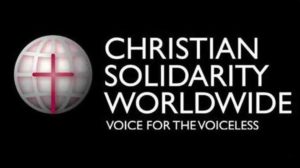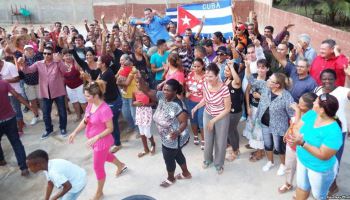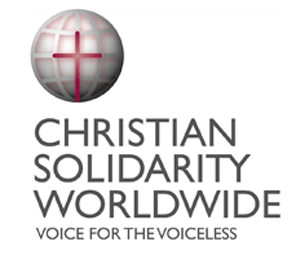The organization Christian Solidarity Worldwide (CSW, its initials in English) denounced on Thursday in a new report an increase in the violations of religious and religious rights on the Island during 2017.
From January to December 2017, CSW documented 325 violations of religious and cultic rights.
For Kiri Kankhwende, a spokesperson for the organization cited by Martí Noticias, this shows the tendency of the Cuban Government and the Office of Religious Affairs to harass church leaders of all denominations.
The report contains details on the severe restriction to public religious events, including the interruption and halting of an interfaith cult event in eastern Cuba, which had received advance permission from local authorities.
The organization also refers to several incidents involving entire churches or, in the case of arrests, dozens of parishioners and cites as examples that every week, dozens of women linked to the Ladies in White, and a large number of activists from human rights, have been temporarily detained to prevent them from attending Sunday mass and other religious events in the middle of the week.
It condemns human rights activists linked to religious organizations as a particular target of the Government, which for a long time has tried to isolate them socially and separate them from communities of faith. CSW highlighted in its report that a problem that affects a wide variety of religious groups in Cuba is the right to be legally recognized.
All the religious groups of the Island must be registered in the Ministry of Justice to operate legally. Some groups such as the Jehovah’s Witnesses have not been able to register again, which makes them technically illegal.
Other groups, such as the Free Association of Afro-Cuban Yoruba, are not registered because they want to remain independent of the government’s influence or control. In the case of the Apostolic Movement, the right to register has been denied, emphasizes the organization.
He notes that while all religious groups experience violations of their rights, unregistered groups are the most vulnerable and suffer some of the most heinous violations, since their unregistered status means their own existence is illegal.
Other evidences presented by the 2017 report are the case of the Old Catholic Church, based in Santa Clara, which requested legal status since July 2007 and is still awaiting a response from the Government.
The report highlights that the regime continued to harass the headquarters of churches affiliated with registered and unregistered religious groups, and in other cases denied applications for registration filed in 2017, or were not answered.
CSW recalls that many churches have been waiting for more than 20 years to obtain legal permission to exist, forcing many to meet illegally. This makes them vulnerable to the confiscation or demolition of their temples, he adds.
In cases of harassment, the report states that several religious leaders have reported that the Cuban government seeks to intimidate them to interfere with the activities of their congregations. Quote the Baptist Church of Majagua, registered in the Eastern Baptist Convention, which reported that dead and rotten animals were thrown on the property of the pastor on numerous occasions in the last 18 months, and despite the filing of a formal complaint, the Government he has not responded or carried out any type of investigation.
Another case is that of the leaders of the Old Catholic Church in Santa Clara. They reported that a neighbor, who is also the president of the Committee for the Defense of the Revolution (CDR), installs audio equipment on the exterior to play music at very high volumes in order to interrupt the services of the church every Sunday.
The Emmanuel Church and its leadership, which is part of the Apostolic Movement in Santiago de Cuba, persecuted by the Government for more than a decade, also reported ongoing problems, such as the case of Rudisbel Rivera Robert, a religious leader who owns the land in the one that is built a temple. Rivera has been cited and interrogated on several occasions as part of a long-standing government tactic to pressure homeowners to avoid religious activities.
The organization recapitulates that in 2014 there were 220 violations of this nature, 180 in 2013, 120 in 2012 and 40 in 2011, which shows that the problem has been continuously increasing.
EN CUBA “TESTIGOS DE JEHOVA” Y OTRAS ORGANIZACIONES RELIGIOSAS SON VIOLADOS SUS DERECHOS DE CULTO.
La organización Solidaridad Cristiana Mundial (CSW, sus siglas en inglés) denunció el jueves en un nuevo informe un incremento de las violaciones de los derechos religiosos y de culto en la Isla durante el 2017.
De enero a diciembre de 2017, CSW documentó 325 violaciones a los derechos religiosos y de culto.
Para Kiri Kankhwende, vocera de la organización citada por Martí Noticias, ello evidencia la tendencia del Gobierno cubano y la Oficina de Asuntos Religiosos de hostigar a líderes de la iglesia de todas las denominaciones.
El reporte recoge detalles sobre la restricción severa a eventos religiosos públicos, incluida la interrupción y la detención de un evento de culto interconfesional en el oriente de Cuba, que había recibido permiso anticipado de las autoridades locales.
La organización hace referencia además a varios incidentes que involucraron a iglesias enteras o, en el caso de detenciones, a docenas de feligreses y pone como ejemplo que cada semana, decenas de mujeres vinculadas a las Damas de Blanco, y un gran número de activistas de derechos humanos, han sido detenidas temporalmente para evitar que asistan a la misa del domingo y a otros eventos religiosos a mitad de semana.
Condena que los activistas de derechos humanos vinculados a organizaciones religiosas fueron un objetivo particular del Gobierno, que desde hace mucho tiempo ha tratado de aislarlos socialmente y separarlos de las comunidades de fe. CSW destacó en su informe que un problema que afecta a una gran variedad de grupos religiosos en Cuba es el derecho a ser reconocidos legalmente.
Todos los grupos religiosos de la Isla deben estar registrados en el Ministerio de Justicia para operar legalmente. Algunos grupos como los Testigos de Jehová no han podido volver a registrarse, lo que los hace técnicamente ilegales.
También otros grupos, como la Asociación Libre de Yoruba Afrocubana, no están registrados porque desean permanecer independientes de la influencia o el control del Gobierno. En el caso del Movimiento Apostólico, le ha sido negado el derecho a registrarse, subraya la organización.
Señala que si bien todos los grupos religiosos experimentan violaciones de sus derechos, los grupos no registrados son los más vulnerables y sufren algunas de las violaciones más atroces, ya que su estado no registrado significa que su propia existencia es ilegal.
Otras evidencias presentadas por el reporte de 2017 son el caso de la Antigua Iglesia Católica, con sede en Santa Clara, que solicitó estatus legal desde julio de 2007 y aún está esperando una respuesta del Gobierno.
El reporte destaca que el régimen siguió acosando las sedes de iglesias afiliadas a grupos religiosos registrados y no registrados, y en otros casos negó las solicitudes de registro presentadas en 2017, o no fueron respondidas.
CSW recuerda que muchas iglesias han estado esperando más de 20 años para obtener permiso legal para existir, lo que obligó a muchas a reunirse ilegalmente. Esto las hace vulnerables a la confiscación o demolición de sus templos, añade.
En los casos de hostigamiento, el informe precisa que varios líderes religiosos han reportado que el gobierno cubano busca intimidarlos para interferir con las actividades de sus congregaciones. Cita la Iglesia Bautista de Majagua, registrada en la Convención Bautista del Este, que reportó que animales muertos y podridos fueron arrojados a la propiedad del pastor en numerosas ocasiones en los últimos 18 meses, y a pesar de la presentación de una queja formal, el Gobierno no ha respondido ni ha llevado a cabo ningún tipo de investigación.
Otro caso es el de los líderes de la Antigua Iglesia Católica en Santa Clara. Estos informaron que un vecino, que también es el presidente del Comité de Defensa de la Revolución (CDR), instala equipos de audio en los exteriores para reproducir música a volúmenes muy altos con el fin de interrumpir los servicios de la iglesia todos los domingos.
La Iglesia Emmanuel y su liderazgo, que es parte del Movimiento Apostólico en Santiago de Cuba, perseguida por el Gobierno por más de una década, también informó de problemas continuos, como el caso de Rudisbel Rivera Robert, un líder religioso dueño de la tierra en la que está edificado un templo. Rivera ha sido citado e interrogado en varias ocasiones como parte de una táctica gubernamental de larga data para presionar a los propietarios a fin de evitar actividades religiosas.
La organización recapitula que en 2014 se registraron 220 violaciones de esta naturaleza, 180 en 2013, 120 en 2012 y 40 en 2011, lo que evidencia que el problema ha ido en continuo aumento.
Agencies/DDC/Various/Excerpts/Internet Photos/Arnoldo Varona/TheCubanHistory.com
THE CUBAN HISTORY, HOLLYWOOD.










